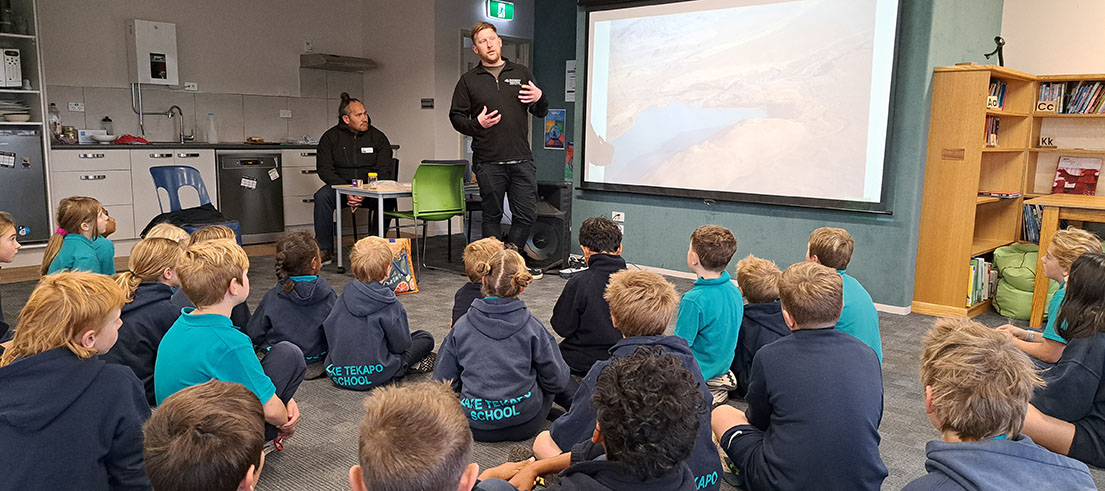
Students connect with history, future of Takapō Regional Park
Over the next 25+ years, we will be removing pest trees from Takapō Regional Park in five stages and planting native and exotic species in their place. Tree removal work has already begun in the centre of the park.
Wilding pine seed spread has been recorded up to 40km from a parent tree, so even one tree can infect many properties. By removing pest pines from the regional park and replacing with native plants and non-spread prone exotics, we’re doing our bit as responsible landholders to protect the unique environment of the Mackenzie Basin.
Removing wilding pines
Regional biodiversity officer Brad Smith talked to the tamariki about wilding pines and why most of the pine trees in Takapō Regional Park have to be removed. Hear Brad talk about his biodiversity work in this YouTube video.
"I’m impressed with the knowledge the children here have about their environment," said Brad. "When I asked why wildings are a problem, they volunteered answers like 'they take over the land' and 'they help the creatures we don’t want, like possums and rats'."
"We also loved hearing the creative solutions the children suggested," said Brad. "My favourite was 'What if we release one million woodpeckers into the wild to control the wilding pines?' The image of a million woodpeckers swooping across the Mackenzie Country gave me a chuckle."
Mahika kai connections
Michael McMillan from Te Rūnanga o Arowhenua talked to the tamariki about how mana whenua used to harvest everything from raupō to tuna/eels from the Takapō area. The children were particularly interested in Michael’s description of the mōkihi/rafts that were made from raupō and used to transport food from Takapō back to settlements.
The class also listened closely to Michael’s description of the mysterious lifecycle of the tuna/eel, and how they travel vast distances over their lifetimes.
Our Parks and Forests team has worked in partnership with Te Rūnanga o Arowhenua to create an innovative replanting plan that incorporates native plants with historic links to the Takapō area. Read more about our replanting plans for Takapō Regional Park.
A special place to visit
The tamariki at Lake Tekapo School said they enjoyed a range of activities in the park, including walking, riding on the mountain bike tracks (especially the pump track and jumps), collecting pinecones, walking, exploring, accessing the lake, and playing frisbee golf.
"The children are obviously very connected to this special park," said Debbie Eddington from the Youth Engagement and Education team. "They were interested to hear that native birds and insects could return to the park as we introduce more native plants there in the future."
"The children were also relieved to hear that the jumbo pinecone trees – Coulter pines – would be protected from the harvest," said Debbie.

